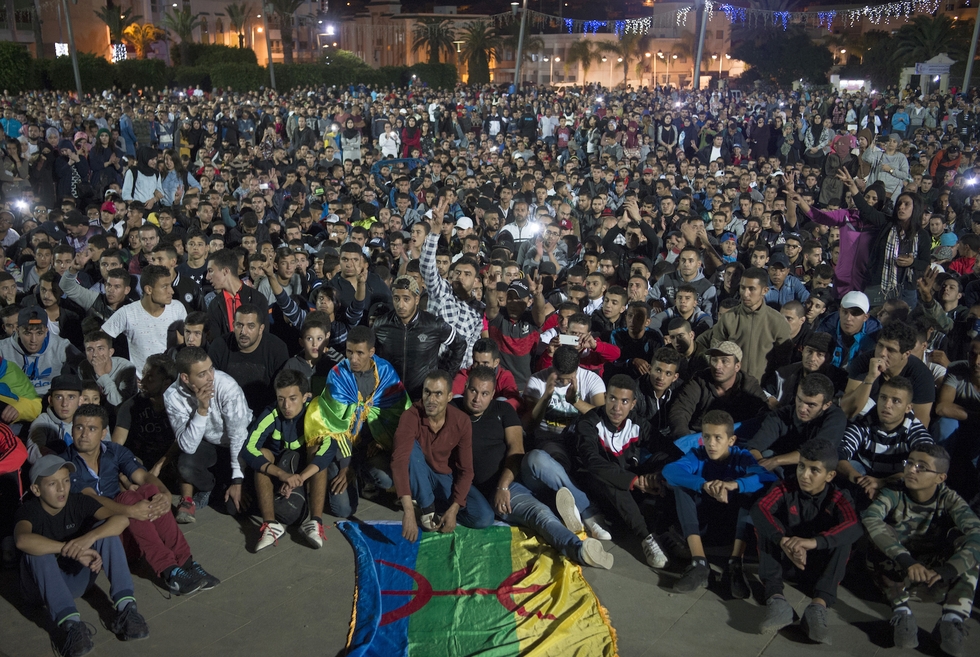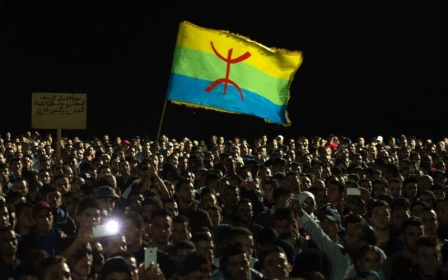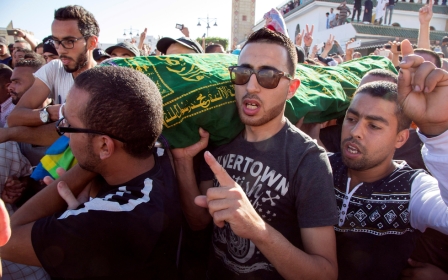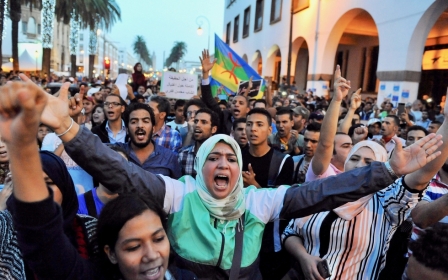Morocco arrests 11 over fishmonger's rubbish truck death

Morocco has arrested 11 people over the death of a fish seller whose crushing in a rubbish truck sparked widespread demonstrations.
The suspects have been brought before an investigating magistrate in connection with allegations of involuntary manslaughter and forgery of public documents, a statement by prosecutors said on Tuesday.
Mouhcine Fikri, 31, was crushed to death on Friday in the truck in the northern city of Hoceima as he reportedly tried to protest against authorities seizing and destroying his wares.
Protest chants and a frenzy of angry postings on social media have blamed the Makhzen, a term used to describe the royal establishment. In an effort to calm tensions, King Mohamed, currently on a tour of Africa, ordered the interior minister to visit the victim's family and present royal condolences.
The general prosecutor said on Tuesday that 11 people had been referred to an investigating judge, including two interior ministry officials, two local fisheries officials and the veterinary chief in Al-Hoceima, on charges of involuntary manslaughter.
Fikri bought 500kg of swordfish, for which fishing is banned from 1 October to 30 November every year, according to a prosecutor's statement published by state news agency MAP.
A police officer guarding the port gates called the security services, who impounded Fikri's truck later inside the city. The veterinary doctor decided the fish was unfit for consumption because of a lack of documents.
But the local committee had already prepared the legal paperwork to destroy the fish before seizing it, which amounts to forgery of public documents, the statement said.
According to local media and authorities, Fikri jumped inside the trash truck that police used to destroy the confiscated fish in a desperate attempt to stop them, and was caught inside the crusher.
Activists accused police officers at the scene of ordering garbage men to crush Fikri but the police denied those accusations, and the prosecutor said the investigation had shown there was no order to harm the victim. The statement did not say who pressed the button of the crusher.
Protests were held in Al-Hoceima and other towns in the surrounding Rif region, as well as in Casablanca and the capital Rabat, where hundreds gathered chanting "Mouhcine was murdered, Makhzen is to blame".
Large-scale political protests are rare in Morocco, where the king still holds ultimate sway, although unemployed graduates have long demonstrated for jobs across the country.
Demonstrations are heavily policed, reflecting official nervousness over popular unrest. While leaders in Tunisia, Egypt and Libya were swept from power in 2011, King Mohamed defused protests in Morocco that year by devolving some of his power to the elected government.
New MEE newsletter: Jerusalem Dispatch
Sign up to get the latest insights and analysis on Israel-Palestine, alongside Turkey Unpacked and other MEE newsletters
Middle East Eye delivers independent and unrivalled coverage and analysis of the Middle East, North Africa and beyond. To learn more about republishing this content and the associated fees, please fill out this form. More about MEE can be found here.




